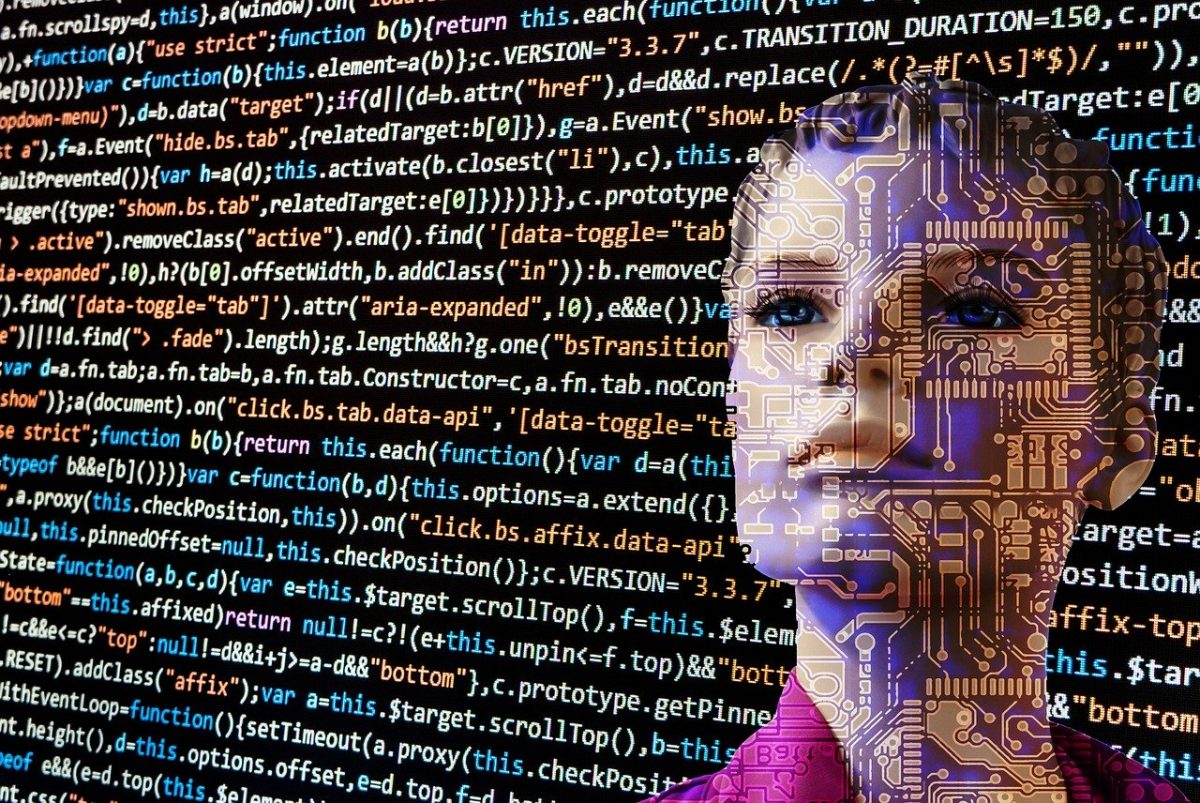
Why could it be that the so-called Artificial Intelligence is actually one of the best used systems that your electronic commerce can have? Let's start with the effects that this groundbreaking and innovative strategy can generate from now on. Because in effect, and as in any business that seeks to improve and maximize its results, Artificial Intelligence can be the definitive resource that entrepreneurs in this growing business sector may have.
With an impressive 35% of its total revenue, product selling and cross-selling on Amazon's e-commerce platform is among this retailer's top success stories. What technology is driving this conversion mode? Amazon's product recommendation technology, which is primarily enabled by artificial intelligence or AI.
Aside from product recommendations, artificial intelligence in the e-commerce industry is being used by online retailers to provide chatbot services, analyze customer feedback, and provide personalized services to online shoppers.
Incidence of Artificial Intelligence
In fact, a study conducted by Ubisend in 2019 found that 1 in 5 consumers is willing to purchase goods or services from a chatbot, while 40% of online shoppers seek great deals and purchase offers from chatbots. .
While global e-commerce sales are projected to reach $ 4.800 billion by 2021, Gartner predicts that around 80% of all customer interactions will be managed by AI technologies (without any human agent) for the year 2020.
So how is AI in Ecommerce changing the shopping experience in 2019? Through this article, let's look at some of the important applications of artificial intelligence in e-commerce along with some real-life industry examples.
How is Artificial Intelligence transforming the shopping experience?
The use of artificial intelligence in online shopping is transforming the e-commerce industry by predicting shopping patterns based on the products that shoppers buy and when they buy them. For example, if online shoppers frequently purchase a certain brand of rice each week, the online retailer could send these shoppers a personalized offer for this product, or even use a machine learning-enabled recommendation for a companion product that go well with rice dishes.
Tools in e-commerce
Ecommerce AI tools or AI-enabled digital assistants such as Google's Duplex tool are developing capabilities such as shopping list creation (from the natural voice of the shopper) and even placing purchase orders. online for them.
Among the main applications of AI in e-commerce there are some more effective than others to achieve the objectives in the store or online commerce. From this perspective, it should be noted that while there are multiple benefits of artificial intelligence in Ecommerce, here are 4 main applications of AI for Ecommerce that is dominating the industry today.
Chatbots and other virtual assistants. E-commerce retailers are increasingly turning to chat bots or digital assistants to offer 24 × 7 support to their online shoppers. Built with artificial intelligence technologies, chat robots are increasingly intuitive and allow for a better customer experience.
Impact of AI?

In addition to providing good customer support, chatbots are increasing the impact of AI in e-commerce through capabilities like these:
Natural language processing (or NLP) that can interpret voice-based interactions with consumers.
Address consumer needs through deeper understanding.
Self-learning skills that help them improve over time.
Provide personalized or targeted offers to customers.
Smart product recommendations
Among the top AI applications in e-commerce, personalized product recommendations for online shoppers are increasing conversion rates by 915% and average order values by 3%. Using big data, AI in Ecommerce is impacting customer choices thanks to its knowledge of past purchases, searched products, and online browsing habits.
Product recommendations provide multiple benefits for e-commerce retailers, including:
Greater number of returning customers
Improved customer retention and sales
A personalized shopping experience for online shoppers
Enable a custom business email campaign.
Personalization of AI in e-commerce?
Ranked among the most effective modes, personalization is at the core of AI in ecommerce marketing. Building on the specific data gathered from each user online, AI and machine learning in Ecommerce is deriving important user insights from generated customer data.
For example, the AI-enabled tool, Boomtrain, can analyze customer data from multiple touch points (including mobile apps, email campaigns, and websites) to see how they are performing online interactions. . These insights enable e-commerce retailers to make appropriate product recommendations and provide a consistent user experience across devices.
Inventory management
Efficient inventory management is about maintaining the appropriate level of inventory that can meet market demand without increasing idle stocks.
Whereas the conventional way of inventory management was limited to current stock levels, the AI-enabled inventory management is enabling the way to maintain stocks based on data related to:
Sales trends in previous years
Projected or anticipated changes in demand for products
Possible supply-side issues that could impact inventory levels
In addition to inventory management, AI is enabling warehouse management with the emergence of automated robots that is projected as the future of artificial intelligence in e-commerce. Unlike human employees, AI robots can be used to store or retrieve stock 24x7 along with immediate dispatch of ordered items after an online order.
In addition to transforming the e-commerce industry in multiple ways, AI in the B2B e-commerce sector is driving a number of innovative solutions. Let's look at some of the recent industry case studies on artificial intelligence that is affecting this sector.
Intelligent AI-Enabled Solutions for the Ecommerce Industry
AI-based technologies are introducing online shoppers to a range of products they didn't even know existed on the market. For example, AI-based technology company Sentient Technologies is enabling virtual digital shoppers to recommend new products to online shoppers based on their personal shopping patterns and data insights.
E-commerce industry

Encouraged by the success of the Amazon Alexa device, this e-commerce giant is introducing the Alexa voice shopping system, which allows you to review Amazon's best daily deals and place purchase orders online with just your voice. What else? Amazon Alexa can also provide wardrobe tips, including the best fashion combinations, and a comparison between outfits on what would look best on you.
AI in the fashion e-commerce industry is reducing the number of returns of products purchased through online sales. For example, fashion brand Zara is deploying AI capabilities to suggest the appropriate clothing size (based on the buyer's measurement) along with their style preferences (loose or fitted clothing). This can help the fashion brand reduce its product returns and improve repeat purchases.
In addition to these innovations, AI-based solutions are transforming the e-commerce industry in the following areas:
AI-enabled email marketing that sends marketing emails for products (or services) that are of interest to the recipient. In addition to reading more human than automated, these email marketing tools make an intelligent analysis of the user based on their response and are more aligned with the individual needs of the client.
AI-enabled supply chain automation that enables effective supply chain management for e-commerce platforms. Other benefits include the ability to make business decisions related to vendors, lead times, and market needs.
Artificial intelligence-based data analysis tools for the e-commerce industry that provide a number of benefits such as business intelligence, customer profiles, and online sales analysis.
Solutions in stores or online stores
Omnichannel AI solutions that are creating a seamless and consistent customer experience across all brick and mortar and online retail stores. For example, Sephora's AI-based omnichannel solutions are using a combination of AI and machine learning, natural language processing, and computer vision to bridge the gap between in-store and online customer experiences.
As this article highlights, artificial intelligence in e-commerce is playing a critical role in driving innovative solutions and customer experiences. Some of the top use cases for artificial intelligence in e-commerce are personalized shopping, product recommendations, and inventory management.
As an online retailer, are you considering how to implement an artificial intelligence working model for your business? Designed for AI in Ecommerce businesses, Countants is an established data analytics provider that is empowering online retailers with solutions focused on product analytics.
Ecommerce search
To address this problem, Twiggle uses natural language processing to narrow, contextualize, and ultimately improve search results for online shoppers. Another company trying to improve e-commerce search is the US-based tech company Clarifai. Clarifai's early work has focused on the visuals of search and, as stated on its website, the software is "artificial intelligence with a vision."
The company enables developers to create smarter applications that "see the world as you see it," enabling companies to develop a customer-centric experience through advanced image and video recognition. Leveraging machine learning, AI software automatically tags, organizes, and visually searches content by tagging image or video characteristics.
Read more about their personalized training, which allows you to build custom models in which you can teach the AI to understand any concept, be it a logo, a product, an aesthetic or a Pokemon. You can then use these new models, along with the existing pre-built models (eg, general, color, food, wedding, travel, etc.) to browse or search for multimedia assets using keyword tags or visual similarities.
Technology as a definitive bet
Artificial intelligence technology offers companies a competitive advantage and is available to developers or companies of any size or budget. A great example is Pinterest's recent update to its Chrome extension, which allows users to select an item from any photo online, and then ask Pinterest to surface similar items using image recognition software.
It's not just that Pinterest introduces new search experiences with AI. Buyers are quickly saying goodbye to impulse control as new software platforms that power e-commerce websites create innovative visual search capabilities.
In addition to finding matching products, AI is allowing shoppers to discover complementary products, be it size, color, shape, fabric, or even brand. The visual capabilities of those programs are truly exceptional.
By first getting visual clues from the uploaded images, the software can successfully help the customer find the product they want. The consumer no longer needs to be shopping to see something they would like to buy.
For example, you might like a friend's new dress or a co-worker's new pair of Nike from the gym. If there is a visual, then AI allows consumers to easily find similar items through ecommerce stores.
Refocus potential customers
According to Conversica, at least 33% of marketing leads are not followed by the sales team. This means that potential pre-qualified buyers interested in your product or service fall into the inevitable cracks.
Additionally, many businesses are overloaded with unmanageable customer data with which they do little or nothing. This is an incredible intelligence goldmine that could be used to improve the sales cycle. For example, if we take a closer look at the retail industry, facial recognition is already being used to catch thieves by scanning their faces on CCTV cameras.
But how can AI be used to improve a customer's shopping experience?
Well, some businesses are using facial recognition to capture customer dwell times in the physical store. This means that if a customer spends a significant amount of time with a specific product, for example an iPod, then this information will be stored for use on their next visit.
As AI develops, we anticipate special offers on customer screens based on time spent in store. In other words, omni-channel retailers are beginning to make progress in their ability to remarket to customers.
The face of sales is changing with businesses responding directly to the customer. It is as if businesses are reading the minds of customers and all thanks to the data used with AI. Some of the main use cases for artificial intelligence in e-commerce are personalized purchases. To browse or search for multimedia assets using keyword tags.